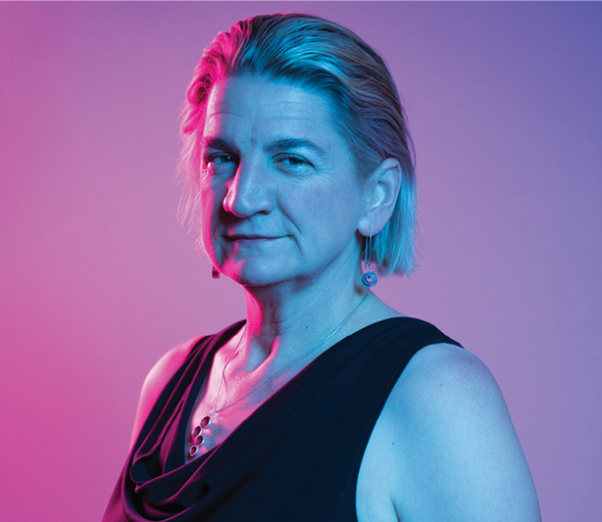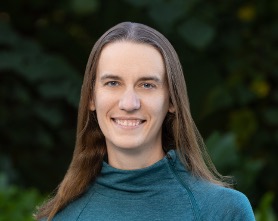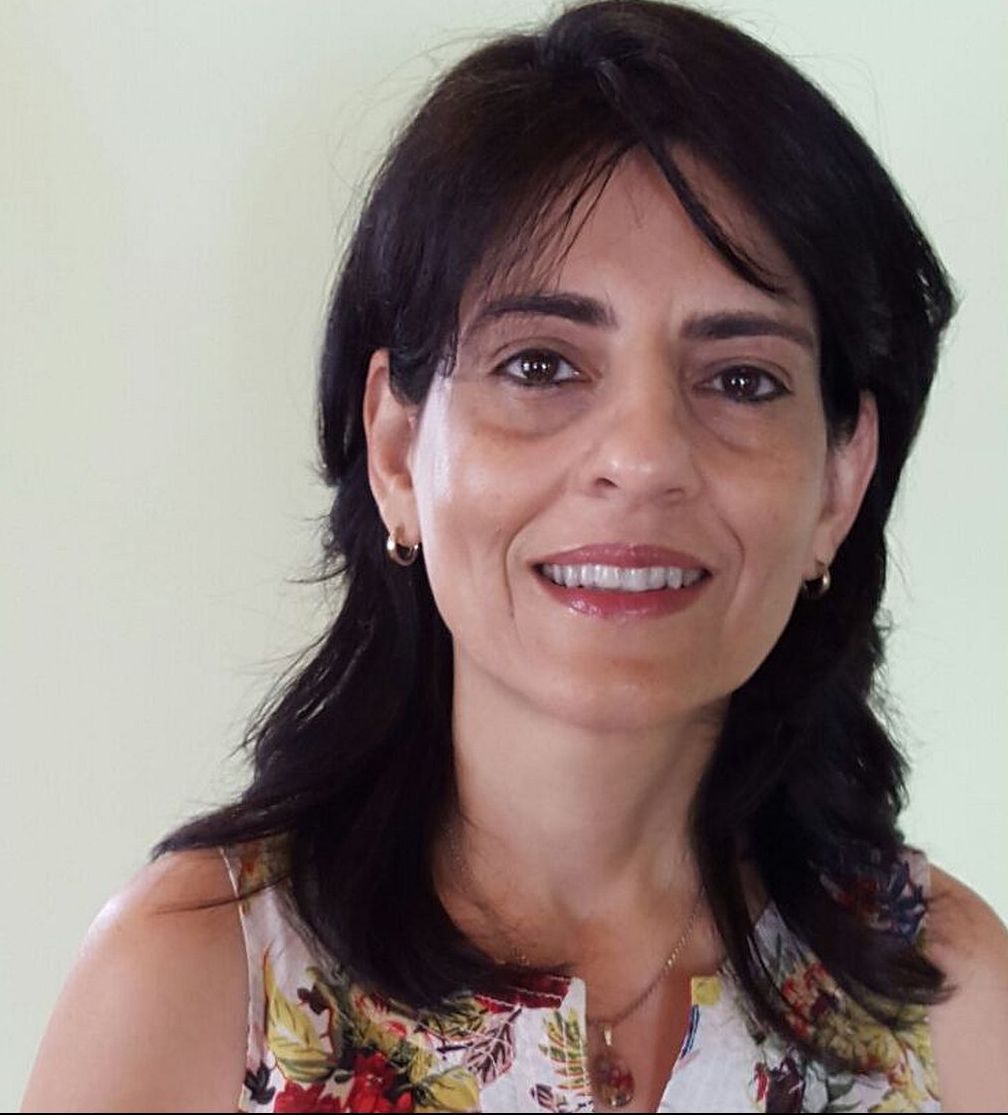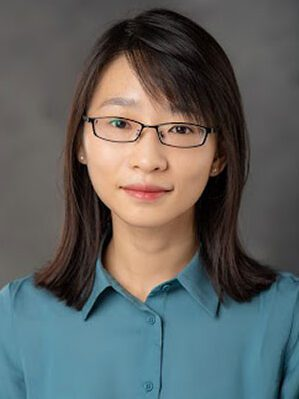Invited Session 2: Biomarker-Fueled Precision: Transforming Translational Cancer Research
1:30 PM - 3:15 PM, May 16, 2025; Chem-H Rotunda E241
Chair: Shannon McWeeney
Panel: Uno Hajime, Alice Chen, Susan Halabi, Jennifer L. Casewell-Jin, Jingshen Wang
Chair: Shannon McWeeney, Oregon Health and Science University (OHSU)
 Dr. Shannon McWeeney, Professor at Oregon Health and Science University (OHSU), is a methodologist working at the intersection of computer science, biostatistics and genetics to develop approaches to solve research bottlenecks and novel ways to visualize and interpret information. Her work on novel computational methods and frameworks for prioritization is one of her most significant contributions to science. While these methods were initially applied to precision medicine (cancer), they have wide applicability for target identification and therapeutic prioritization for many complex traits. In 2010, Dr. McWeeney was selected as a Kavli Frontiers Fellow by the US National Academy of Sciences for these contributions. Dr. McWeeney is the inaugural Chief Data Officer and Associate Director of Data Science for the OHSU Knight Cancer Institute and has a career-long commitment to data sharing and patient engagement. She served as a member of the Enhanced Data Sharing working group for the NCI Blue Ribbon Panel for White House Moonshot Initiative and as a member of the Biden Cancer Initiative Data Sharing and Patient Empowerment workstream. In 2020, she was named the Director of Medical Bioinformatics for the OHSU Knight Precision Oncology Program, in which she is responsible for the hardening and validation of assays, algorithms and models in the transition from research analytics to CLIA. She is a M-PI for OHSU’s NCI Acquired Resistance to Therapy Network (ARTNet), which arose from her collaborative work for over a decade as part of the OHSU BeatAML program. She is also an MPI for the NIH Bridge2AI AI-READi Salutogenesis Data Generation Project, collaboratively working to develop automated tools to accelerate the creation of FAIR (Findable, Accessible, Interoperable, and Reusable), CARE (Principles for Indigenous Data Governance) and ethically sourced data sets for machine learning and artificial intelligence.
Dr. Shannon McWeeney, Professor at Oregon Health and Science University (OHSU), is a methodologist working at the intersection of computer science, biostatistics and genetics to develop approaches to solve research bottlenecks and novel ways to visualize and interpret information. Her work on novel computational methods and frameworks for prioritization is one of her most significant contributions to science. While these methods were initially applied to precision medicine (cancer), they have wide applicability for target identification and therapeutic prioritization for many complex traits. In 2010, Dr. McWeeney was selected as a Kavli Frontiers Fellow by the US National Academy of Sciences for these contributions. Dr. McWeeney is the inaugural Chief Data Officer and Associate Director of Data Science for the OHSU Knight Cancer Institute and has a career-long commitment to data sharing and patient engagement. She served as a member of the Enhanced Data Sharing working group for the NCI Blue Ribbon Panel for White House Moonshot Initiative and as a member of the Biden Cancer Initiative Data Sharing and Patient Empowerment workstream. In 2020, she was named the Director of Medical Bioinformatics for the OHSU Knight Precision Oncology Program, in which she is responsible for the hardening and validation of assays, algorithms and models in the transition from research analytics to CLIA. She is a M-PI for OHSU’s NCI Acquired Resistance to Therapy Network (ARTNet), which arose from her collaborative work for over a decade as part of the OHSU BeatAML program. She is also an MPI for the NIH Bridge2AI AI-READi Salutogenesis Data Generation Project, collaboratively working to develop automated tools to accelerate the creation of FAIR (Findable, Accessible, Interoperable, and Reusable), CARE (Principles for Indigenous Data Governance) and ethically sourced data sets for machine learning and artificial intelligence.
Panelist: Dr. Hajime Uno, Harvard Medical School
 Dr. Hajime Uno is an Associate Professor of Medicine at Harvard Medical School. He serves as a Principal Biostatistician and the Director of the Statistical Programming Core in the Division of Population Sciences at the Dana-Farber Cancer Institute. He earned his Ph.D. in Biostatistics from Kitasato University in Tokyo, Japan, and completed his postdoctoral training under the mentorship of Professor LJ Wei at the Harvard School of Public Health.
Dr. Hajime Uno is an Associate Professor of Medicine at Harvard Medical School. He serves as a Principal Biostatistician and the Director of the Statistical Programming Core in the Division of Population Sciences at the Dana-Farber Cancer Institute. He earned his Ph.D. in Biostatistics from Kitasato University in Tokyo, Japan, and completed his postdoctoral training under the mentorship of Professor LJ Wei at the Harvard School of Public Health.
Dr. Uno has led a wide range of methodological and clinical research initiatives. His contributions include a modified version of the concordance index (C-index) for evaluating risk prediction models with censored time-to-event data—a method now implemented in the SAS/PHREG procedure and cited in over 1,500 publications. He has also developed and promoted alternative approaches for survival analysis, such as methods utilizing restricted mean survival time (RMST) and average hazard (AH). His work aims to enhance the clinical interpretability of treatment effects and improve the quality of informed decision-making in oncology research.
Panelist: Dr. Alice Chen, National Cancer Institute
 Dr. Chen directs the Developmental Therapeutics Clinic (DTC) at the National Cancer Institute since 2014. Within the DTC, NCI facilitates the discovery and development of new anticancer drugs and drug targets agents on a national and international basis. She works closely with her statisticians at the Biometric Research Program to develop novel clinical trial designs that best fit the agent in development. She led a trial of atezolizumab in Alveolar Soft Part Sarcoma that had led to approval of atezolizumab in this histology and first approval for pediatrics and reported in the NEJM. She is also one of the PI for the NCI MATCH and ComboMATCH, both are national precision medicine trials. She will be presenting an international trial of selumetinib in NF1 patients with plexiform neurofibromatosis at ASCO this year. She is the director the Advance Developmental Therapeutic Training Program which trains medical oncologists in early phase drug development. She has authored over 180 manuscripts and made presentations by invitation to major oncology meetings internationally on early phase clinical trials, precision medicine, and rare tumor.
Dr. Chen directs the Developmental Therapeutics Clinic (DTC) at the National Cancer Institute since 2014. Within the DTC, NCI facilitates the discovery and development of new anticancer drugs and drug targets agents on a national and international basis. She works closely with her statisticians at the Biometric Research Program to develop novel clinical trial designs that best fit the agent in development. She led a trial of atezolizumab in Alveolar Soft Part Sarcoma that had led to approval of atezolizumab in this histology and first approval for pediatrics and reported in the NEJM. She is also one of the PI for the NCI MATCH and ComboMATCH, both are national precision medicine trials. She will be presenting an international trial of selumetinib in NF1 patients with plexiform neurofibromatosis at ASCO this year. She is the director the Advance Developmental Therapeutic Training Program which trains medical oncologists in early phase drug development. She has authored over 180 manuscripts and made presentations by invitation to major oncology meetings internationally on early phase clinical trials, precision medicine, and rare tumor.
Panelist: Dr. Jennifer Caswell-Jin, Stanford University
 Jennifer Caswell-Jin, MD is an Assistant Professor of Medicine (Oncology) at Stanford University, where her clinical practice centers on breast oncology, hereditary cancer, and breast cancer risk. Her translational research program integrates multi-omic analysis, modeling, real-world data, and clinical trials to advance precision oncology and improve outcomes for individuals with breast cancer. She is the principal investigator of the Department of Defense-funded TERPSICHORE trial, which evaluates the use of short-term biomarker-targeted novel agents in the pre-operative treatment of breast cancer.
Jennifer Caswell-Jin, MD is an Assistant Professor of Medicine (Oncology) at Stanford University, where her clinical practice centers on breast oncology, hereditary cancer, and breast cancer risk. Her translational research program integrates multi-omic analysis, modeling, real-world data, and clinical trials to advance precision oncology and improve outcomes for individuals with breast cancer. She is the principal investigator of the Department of Defense-funded TERPSICHORE trial, which evaluates the use of short-term biomarker-targeted novel agents in the pre-operative treatment of breast cancer.
Panelist: Dr. Susan Halabi, DukeUniversity Medical Center

Susan Halabi, PhD, is the James B. Duke Distinguished Professor of Biostatistics and Bioinformatics and Co-Chief of the Division of Biostatistics in the Department of Biostatistics and Bioinformatics at Duke University Medical Center. For over twenty-five years, she has been at the forefront of designing and analyzing clinical trials in oncology. Dr. Halabi develops novel methods for the design and analysis of clinical studies, including innovative variable selection techniques for biomarkers and high-dimensional data. She is deeply committed to ensuring statistical rigor in clinical research so that findings are both scientifically valid and meaningful to patients and society.
Her most significant contributions include the development and validation of prognostic models for prostate cancer outcomes and the identification of surrogate endpoints for overall survival. Dr. Halabi has authored over 300 peer-reviewed publications and co-edited two foundational books in the field: Oncology Clinical Trials (2nd Edition, Demos, 2018) and the Textbook of Clinical Trials in Oncology (CRC Press, 2019). A past president of the Society for Clinical Trials and the recipient of several prestigious awards, she is also a Fellow of the Society for Clinical Trials, the American Statistical Association, and the American Society for Clinical Oncology.
Panelist: Dr. Jingshen Wang, University of California, Berkeley
 Jingshen Wang, PhD, is an Assistant Professor of Biostatistics at the University of California, Berkeley. Her research team works on causal inference, experimental design, precision medicine, and, more recently, machine learning and artificial intelligence methods for healthcare. Her team also develops ML and AI approaches in collaboration with researchers to better understand the heterogeneity of Alzheimer’s disease and to design interventions for HIV prevention and care in Tanzania.
Jingshen Wang, PhD, is an Assistant Professor of Biostatistics at the University of California, Berkeley. Her research team works on causal inference, experimental design, precision medicine, and, more recently, machine learning and artificial intelligence methods for healthcare. Her team also develops ML and AI approaches in collaboration with researchers to better understand the heterogeneity of Alzheimer’s disease and to design interventions for HIV prevention and care in Tanzania.